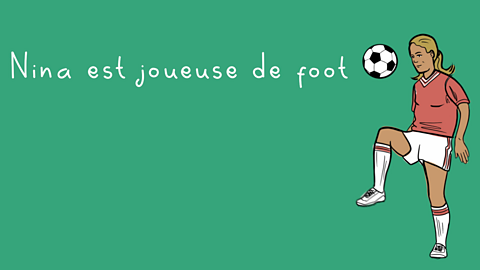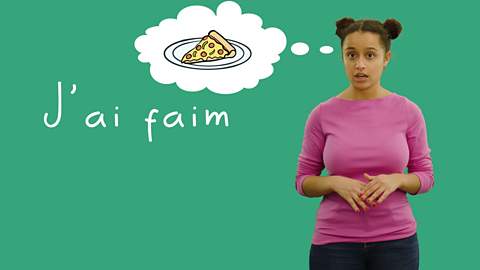Adjectives: How to describe people, places and things in French
You're going to want to describe nouns in French.ā
J'ai un chien - I have a dog is nice butāā¦ J'ai un chien mignon - I have a cute dogā¦ is better!ā
The first thing to notice is that adjectives in French usually go after the noun.ā
J'ai une porte verte - I have a green door.ā
The next thing to notice is that the adjective must agree with the noun. ā
Une porte is a feminine noun which means that the adjective vert has a āfeminine ending 'e'.ā
If you have more than one of something like deux lapins blancs - two white ārabbits, lapins is plural. Which means that the adjective has to be plural too. blancs has an s at the end.ā
If you have more than one girl les filles then any adjective has to be feminine āand plural.ā
So content adds an e and an s - les filles contentes - the happy girls. Usually adjectives in āFrench come after the noun but there are a few that don't.
beau - beautiful, comes before the noun,ā
bon - good, un bon livre - a good book,
and grand and petit also go before the noun.
Ma petite sÅur - My little sister. ā
Mon grand lit - My big bed.ā
Now where's my cute black dog? **OĆ¹ est mon chien mignon et noir?**ā
What is an adjective?
Adjectives are describing words. They tell us more information about nouns, such as the ācolour, size, age, etc.ā
Examples of adjectives include:
| French | English |
|---|---|
| bleu | blue |
| grand | big |
| petit | small |
| nouveau | new |
| vieux | old |
Where do adjectives go in relation to nouns?ā
In French, adjectives usually go after the noun:ā
- Jāai un chat noir - I have a black cat.ā
- Mon pĆØre a les cheveux courts - My dad has short hair.ā
However, most of the BAGS adjectives go before the noun. BAGS stands for Beauty, Age, āGoodness and Size.
| Beauty | Age | Goodness | Size |
|---|---|---|---|
| beau / belle āā¶Ä(²ś±š²¹³Ü³Ł¾±“Ś³Ü±ō)ā | vieux / vieille (“Ē±ō»å)ā | bon / bonne (good) | grand(e) (²ś¾±²µ)ā |
| joli(e) (±č°ł±š³Ł³Ł²ā)ā | nouveau / nouvelle āā¶Ä(²Ō±š·É)ā | mauvais(e) (²ś²¹»å)ā | petit(e) (small) |
For example:ā
- Jāhabite dans une grande maison - I live in a big house.ā
- Ma copine a une nouvelle tortue - My friend has a new tortoise.ā
Most adjectives in French change depending on whether they are describing a masculine, āfeminine or plural noun. The usual endings are as follows:ā
| masculine singular | masculine plural | feminine singular | feminine plural |
|---|---|---|---|
| (no ending) | ā-s | -e | -es |
- Jāai un vĆ©lo vert - I have a green bike.ā
- Tu aimes les haricots verts? - Do you like green beans?ā
- Ma tante mange une pomme verte - My aunt is eating a green āapple.ā
- Mon oncle aime les voitures vertes - My uncle likes green cars.ā
To find out more about exceptions to the rules and irregular BAGS adjectives click on the link below:

More on Grammar
Find out more by working through a topic
- count3 of 8

- count4 of 8

- count5 of 8

- count6 of 8
